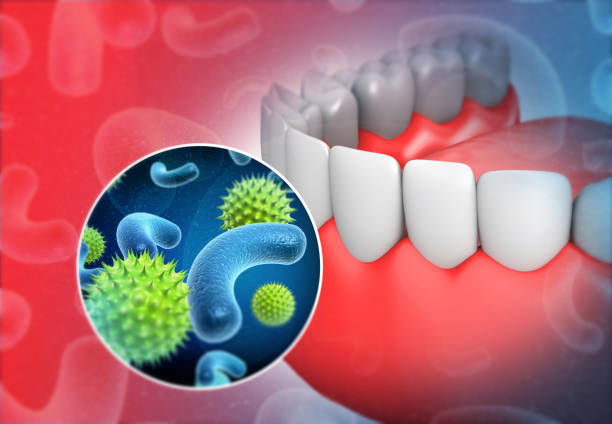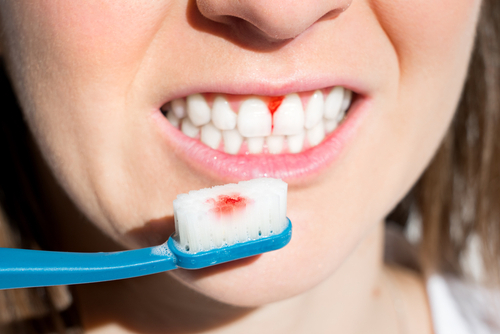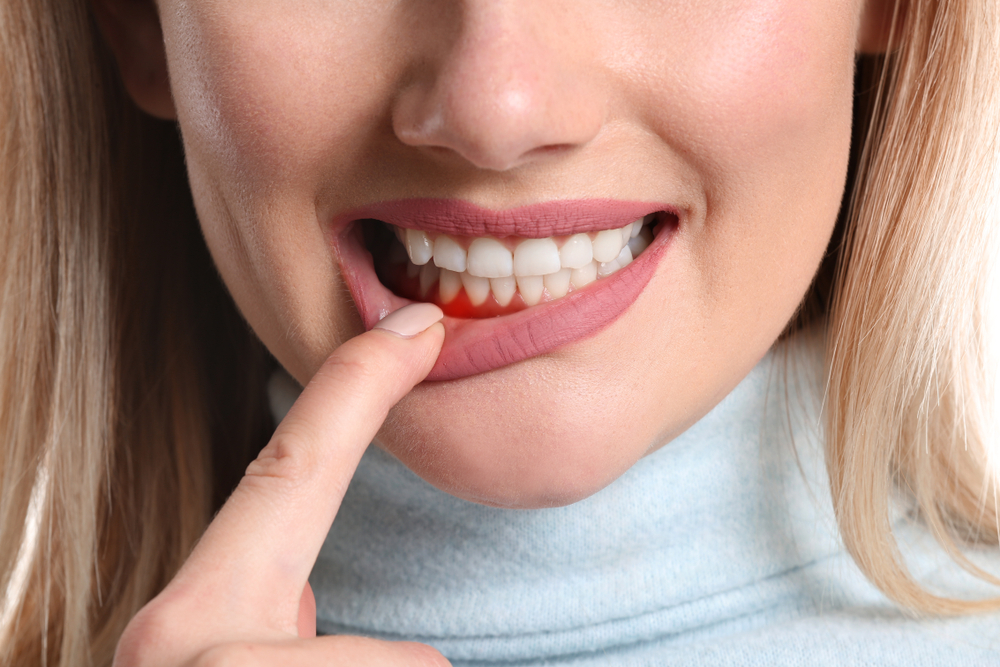Gingivitis is considered as a form of gum disease that is not well understood by many as it is affecting hundreds of millions of people around the globe. Since there are a number of myths associated with the causes and the ways of transmission of the disease, it is essential to separate myths from reality. One question often asked is: If gingivitis is contagious what does the causative agent look like? Below, let’s take a closer look at what gingivitis is, how it can progress and how it can be stopped.(Is Gingivitis Contagious)
What is Gingivitis?
Gingivitis refers to inflammation of the gum that results from the accumulation of an unwarranted layer of bacteria known as plaque that forms on the teeth. This is actually the initial stage of gum diseases and if not effectively managed may worsen to other stages. The general causes include lack of dental hygiene, tobacco use and some diseases which hinder the immune system.

Signs and Symptoms of Gingivitis
Here are some common signs:
- Red or swollen gums
- Bleeding while brushing or flossing
- Persistent bad breath
- Receding gums
- Tenderness or discomfort in the gums
If you notice any of these symptoms, it’s important to take them seriously and seek advice from a dental professional.

Causes of Gingivitis
Here some common causes are described:
- Smoking or using tobacco products
- Hormonal changes during pregnancy, menstruation, or menopause
- Poor nutrition, particularly a lack of vitamin C
- Medical conditions such as diabetes
- Certain medications that reduce saliva flow
- Genetic predisposition to gum disease
How Does Gingivitis Develop?
Gingivitis starts from development of deposit known as plaque on the teeth. If this plaque is not brushed and flossed off, it calcifies forming what is referred to as tartar which is known to cause gum inflammation. Recurring irritation thus leads to swelling and formation of gums, which results in gum diseases. If the gingivitis is not treated the condition worsens and becomes periodontitis which can lead to loss of teeth.(Is Gingivitis Contagious)
Is Gingivitis Contagious?
So, let’s tackle the big question: Some factors associated with gingivitis include: Is gingivitis communicable? The answer isn’t straightforward. In fact, gingivitis is not infectious like a flu or cold but if not treated in good time can cause serious complications. However it was revealed that bacteria responsible for gingivitis can be transmitted human to human through saliva. What this implies is that sharing utensils, kissing or even using the same bar of detail can spread the bacteria causing gingivitis.(Is Gingivitis Contagious)
Although you cannot ‘get’ gingivitis from a distance like flu, you can transfer the germs that cause the gum disease. This makes it necessary to practice good oral hygiene such as regular brushing, flossing and not sharing items in our mouth such as toothbrushes, spoons and straws.(Is Gingivitis Contagious)

How Can Gingivitis Spread?
Gingivitis bacteria are present in the mouth and more specifically in the areas where plaque formation takes place. Here are some common ways these bacteria can spread:
- Kissing: ontact, for instance, kissing transmit bacteria from one mouth to another hence causing the illness.
- Sharing Utensils or Drinks: Sharing utensils, drinking straws, cups means that you are likely to pass some bacteria around.
- Personal Items: Shared utensils such as toothbrushes are also can transfer the germs responsible for gingivitis.
However, it is important to state here that not all the people who get exposed to these bacteria are likely to suffer from gingivitis. Personal factors including, state of health, past diseases and present immune system status, teeth cleaning habits, and others such as diet also contributes to risk factors.
Risk Factors for Contracting Gingivitis
Poor Oral Hygiene
The first ever identifiable cause of gingivitis is that the person, who is afflicted with this disease, has been neglecting to do proper brushing of teeth. If brushed and flosses are not done regularly, there is formation of plague in the teeth which later forms tartar and this causes inflammation of the gum. If the plaque and tartar are allowed to build up, they cause infection and inflammation which leads to; gingivitis.(Is Gingivitis Contagious)
Smoking and Other Lifestyle Parameters
Tobacco use in any form including smoking increases your vulnerability for gingivitis to occur. Tobacco products contained some substances that are capable of affecting gums hence making them more vulnerable to infections. However, you may be unaware that many factors, including stress, poor diet, and social and physical inactivity and poor hydration negatively affect gum health.(Is Gingivitis Contagious)
Genetics and Underlying Health Conditions
There are also pre disposed people to gum disease, and this is brought about by their genetic make up. Finally, people with disorders ruling co-morbidity such as diabetics, HIV/AIDS and other immunosuppressive diseases are prone to infections which include Gingivitis.
Can You Prevent Gingivitis?
Fortunately, gingivitis is not a very difficult disease to prevent and it can be attributed to some care. Here are some tips to keep your gums healthy:Here are some tips to keep your gums healthy:
Proper Oral Care Routine
- Brush Twice Daily: Fluoridated tooth paste and clean teeth for not less than two minutes.
- Floss Daily: Flossing helps to reduce plaques that are hard to be removed by a toothbrush.
- Use Mouthwash: Mouthwash that contains antibacterial properties can assist to control the amount of plaque formed.
- Quit Smoking: Smoking reduces the body’s ability to fight off gum infection because it reduces your immune system.

Regular Dental Check-ups
It is necessary that you visit your dentist for check- up at least twice a year in order to avoid gingivitis. A professional cleaning gets rid of tartar which brushing and flossing do not eliminate.Dentists can identify signs of early gum diseases and recommend mode of treatment before the condition aggravates.
Healthy Diet and Habits
The disease can also be prevented by constantly taking foods that are rich in vitamins and minerals especially vitamin C which plays an important role in healthy gummy smile. Say no to candies, cakes and soft drinks that result in the formation of the plaque on teeth. This will help eliminate foods particles and bacteria hence preventing the occurrence of gingivitis if adequate amount of water is ingested.(Is Gingivitis Contagious)
What You Should Do if You Notice You Have Gingivitis?
If you are considering that you have gingivitis, don’t worry. These stages are very much reversible if there is a regular practice of oral hygiene and a visit to the dentist. Here’s what you should do:Here’s what you should do:
- Schedule a Dental Appointment: One can consult a dentist in order to have his/ her gums checked and advised accordingly.
- Improve Your Oral Hygiene:Step, Welfare : Begin brushing and flossing properly.
- Consider Antibacterial Mouthwash:This can distort germs in the mouth region though the amount will still be present since the body possesses trillions of bacteria.
- Avoid Sharing Items: Avoid spreading bacteria by not sharing utensils and cups and do not share a toothbrush.
Treatment Options for Gingivitis
Professional Dental Treatments
If gingivitis has advanced, then the treatment should be aimed at the help of a professional dentist. This could be a process known as scaling and root planing; this involves a dentist or dental hygienist scraping tartar and plaque from the surfaces of the teeth as well as the gum line. Your dentist may also prescribe some drugs like antibiotics that is available in the form of mouthwash or gel.(Is Gingivitis Contagious)

Natural Treatments for the Control of Symptoms
Some home remedies include; rinsing teeth and the mouth with salt water and other natural remedies like applying aloe vera gel that has, anti-inflammatory properties. Nevertheless, these should be used with attuned to, not as a substitute for, professional dental advice.
How to Protect Loved Ones from Gingivitis
If you or a family member has gingivitis, take steps to protect others:If you or a family member has gingivitis, take steps to protect others:
- Do not share any items used in the mouth such as toothbrushes and then use them on the food or drinks such as spoons or cups.
- Wash your own mouth out to cut down bacterial presence to cut down bacteria.
- Promote dental visits by all the members in the house even when they do not have any issue with their teeth.(Is Gingivitis Contagious)
Myths and Facts About Gingivitis
In this article, there are some myths that are making people have wrong information about gingivitis and this is what this article will be discussing.
- Myth: It is best stated that gingivitis only affects elderly people..
- Fact: Gingivitis occurs in anyone at any age, but where the teeth are not cleaned properly, it is likely to occur.
- Myth: It is perfectly okay if one experiences slight bleeding whenever he or she gargles, brushes his or her teeth or uses some other dental tools.
- Fact: One of the most important signs that your gums should not bleed. Gum disease is a common problem and thus some of the symptoms include bleeding.(Is Gingivitis Contagious)
Conclusion
According to present day information, gingivitis may be a regular gum disease, but it should not be considered a trifle. However, it is not infectious in the normal manner, it transmits through saliva and you get infected with the bacteria that cause the disease. This means that practices such as spitting or using the same spoon, cup, glass, or even shaking hands or hugging, or kissing can spread these bacteria results in. Nevertheless, not all individuals who get exposed to these germs will suffer from gingivitis as some factors like immune system, or regular dental hygiene practices influence the extent of the problem.(Is Gingivitis Contagious)
The bit of consolation is that gingivitis is nearly always preventable if one practices good oral hygiene and is almost always reversible if diagnosed and treated early. In order to keep gums healthy, brushing regularly, flossing and visiting the dentist, practicing to have a good and healthy diet all count as the best ways. So, if ever get signs and indicators of uncontrolled gingivitis like bleeding and swelling gums, do something right away, enhance your oral hygiene practices and visit your dental practitioner.
Hoping you have understood, oral health is not just about having perfect white teeth but it more of having a healthy life. Through the following facts about gingivitis, you and your loved ones won’t have to suffer from this disease Inclusive of the preventive measures, gingivitis can be averted. Therefore, never neglect going for an oral care check and ensure that others do so too because gums are the foundation for a throughout lifetime beautiful smile.(Is Gingivitis Contagious)
Is Gingivitis Permanent?
No, gingivitis is not irreversible by it can be cured through observing good oral hygiene as well as getting the required dental treatment.
Can Children Get Gingivitis?
Yes, children happen to be susceptible to developing gingivitis provided that do not take the time to brush their teeth.
What Foods Should Be Avoided in This Condition, Particular Gingivitis?
It is therefore recommended to take meals which are less sweet and less acidic since they are likely to cause formation of plaque and irritation of the gums.
What Other Conditions Does Gingivitis Relate to?
In fact, gingivitis has been associated with several other diseases including heart diseases, diabetes and breathing problems.
Gingivitis Cure: How Long Does It Take?
Gingivitis is the earliest stage of gum disease that if treated appropriately should take between 2 weeks and a month to be cured.

